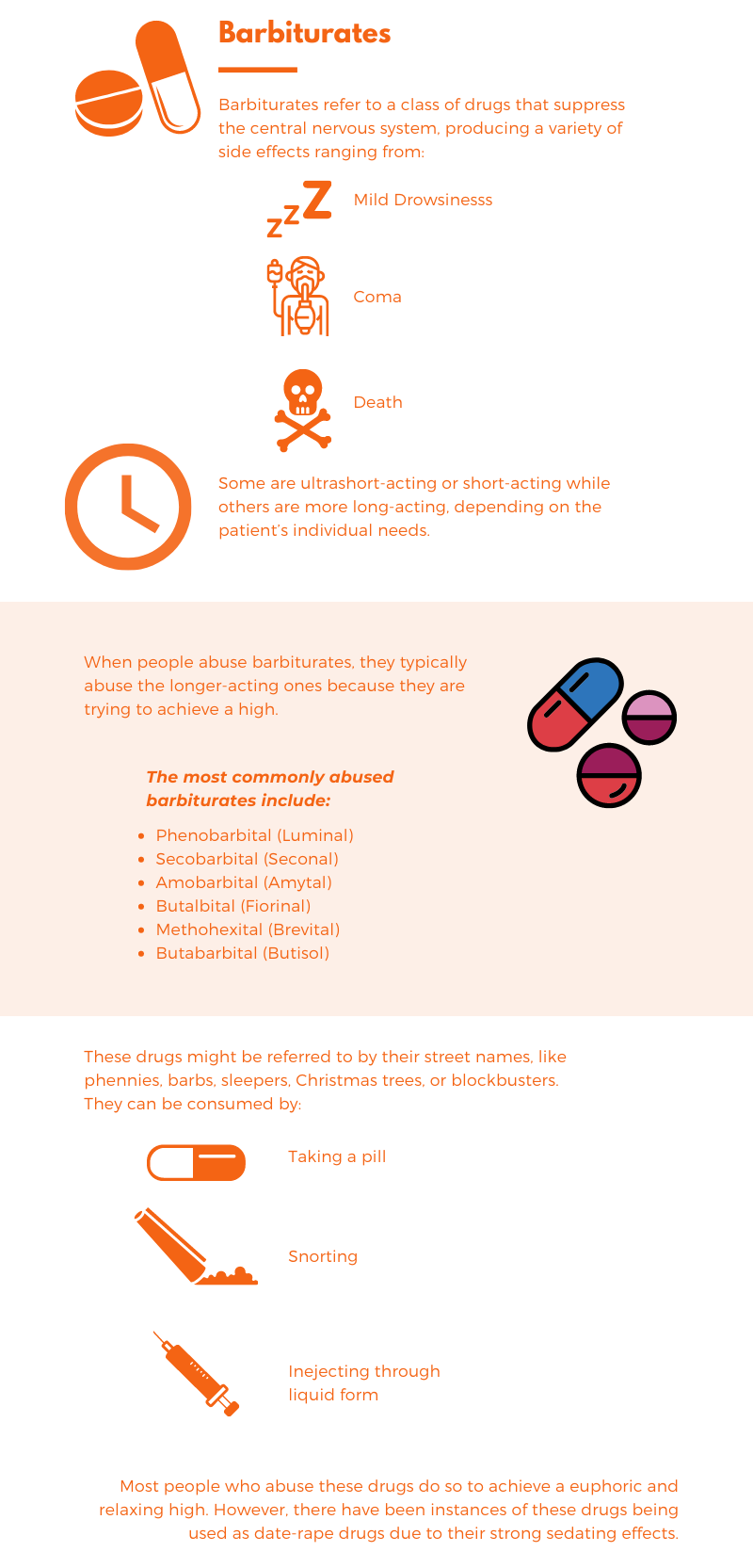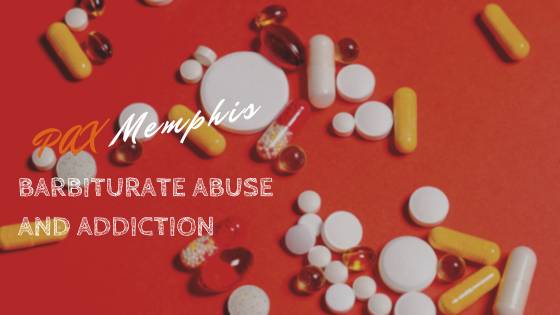Barbiturate abuse is dangerous because these sedative-hypnotic drugs are highly addictive and can produce dangerous side effects. Sometimes prescribed for the treatment of insomnia, seizures, anxiety, and migraines, this class of medications are controlled substances due to their risk of abuse and dependence. People who abuse barbiturates do so for their sedative-like effects, but they face the potential risks of overdose and addiction.
These drugs become popular in the 1960s and 70s as they were a commonly used recreational drug. However, benzodiazepines have quickly replaced barbiturates in popularity. Today, barbiturates are rarely used in medical treatments, but many of these medications are still produced and fall into the hands of people who abuse them. Although uncommon, barbiturate abuse happens and has extremely harmful consequences.
Many people who are addicted to these drugs will experience severe and potentially life-threatening withdrawal symptoms if they attempt to get sober on their own. As a result, it’s critical that you seek professional drug rehab if you’re suffering from barbiturate addiction.
Commonly Abused Barbiturates

Signs and Symptoms of Barbiturate Abuse
Like all medications, there are side effects associated with taking barbiturates. Some of the most serious side effects include poor coordination, confusion, headache, vomiting, and memory problems. This is why anyone who is prescribed these medications should follow their doctor’s dosing orders, and any use of these drugs other than that is considered illicit.
When abused, barbiturates produce similar symptoms to those of alcohol intoxication. Someone who is abusing barbiturates may show the following signs and symptoms:[1]
- Slurred speech
- Lack of coordination
- Confusion
- Impaired judgment
- Low inhibitions
- Relaxation and euphoria
- Drowsiness
- Sluggishness
- Mood changes
Furthermore, when taken in extremely high doses or combined with alcohol, people may show the following signs of barbiturate overdose:
- Shallow breathing
- Cold or clammy skin
- Respiratory failure
- Kidney failure
- Coma
- Death
In the event of a barbiturate overdose, it is imperative to seek medical attention immediately.
Since barbiturates have relaxing and depressing effects on the body’s internal organs, long term barbiturate abuse might lead to an array of additional issues, such as:
- Pneumonia
- Sexual dysfunction
- Delayed reflexes
- Shortened attention span
- Emotional instability
- Memory loss
As with any other substance that people abuse, long-term barbiturate abuse inevitably leads to drug addiction.
Barbiturate Addiction and Withdrawal
Although barbiturates aren’t among the most popular drugs, they are highly addictive. As a result, people who abuse these substances become physically dependent on them quickly. Once the body is physically dependent on a substance, it takes time for it to adjust without it. This adjustment period is when withdrawal symptoms present themselves as the body tries to reach a normal balance.
Withdrawal symptoms associated with barbiturate addiction include:
- Anxiety
- Insomnia
- Restlessness
- Nausea and vomiting
- Stomach cramping
- Tremors
- Depression
- Suicidal thoughts
- Hallucinations
- Seizures
- Confusion
- Delirium
- High fever
- Heart failure
Unfortunately, these withdrawal symptoms can be fatal. For instance, up to 75% of people who experience barbiturate withdrawal have one or more seizures and 66% experience delirium that may last for several days.[2] As a result, people who are addicted to these medications should always seek medical assistance rather than trying to detox alone.
Finding Help for Barbiturate Abuse and Addiction
The first step towards recovery from addiction involves medical detox. If you have been abusing barbiturates for an extended period of time, you may be at risk for severe withdrawal symptoms. This makes detoxing alone difficult and dangerous. Instead, attending a professional detox will provide you with the comfort, support, and supervision needed to detox safely and comfortably.
After detox, most patients move onto the next phase of treatment. This is either inpatient or outpatient rehab. Both types of rehab provide intensive counseling and evidence-based therapies to help patients heal from addiction. After all, recovery isn’t just about removing the toxic and addictive substances from the body. Instead, it’s about learning how to recognize what makes you want to abuse drugs and learn how to cope with life in recovery.
At PAX Memphis Recovery Center, our experienced mental health and addiction specialists are here to help you each step of the way. Starting with detox, we will provide you with the support and care needed to set a firm foundation in your recovery. If you or a loved one is struggling with barbiturate abuse or addiction, don’t want any longer – contact us today to find the treatment you deserve.
References:
Medically Reviewed: September 25, 2019

All of the information on this page has been reviewed and verified by a certified addiction professional.










